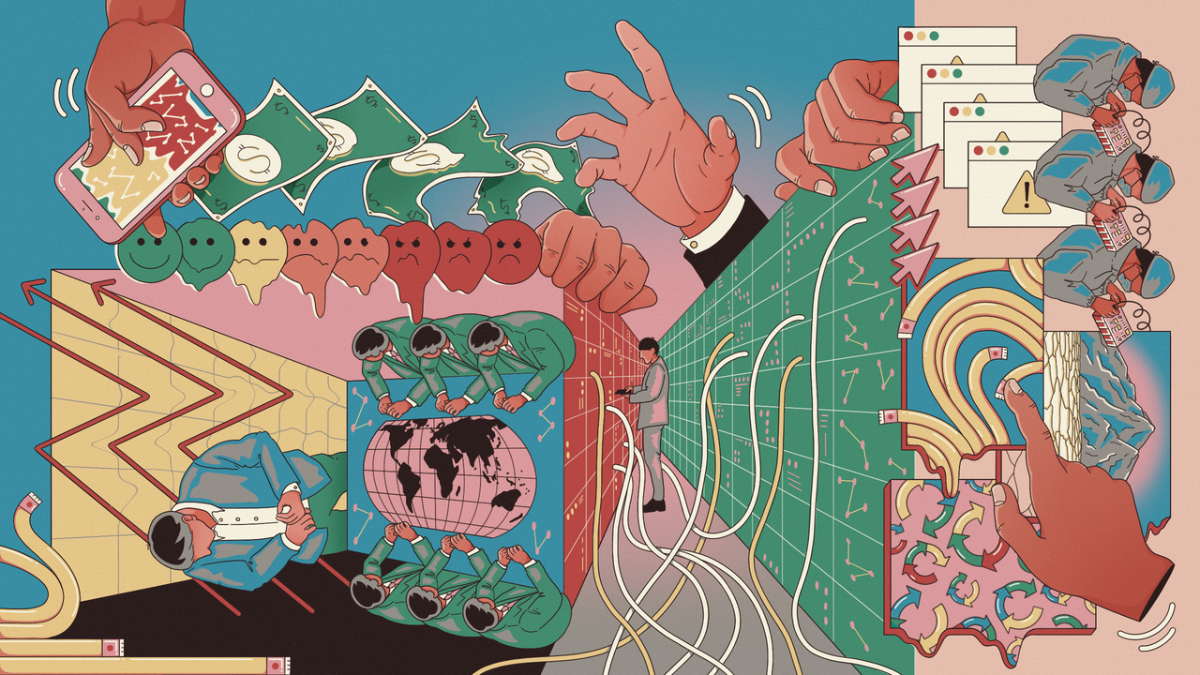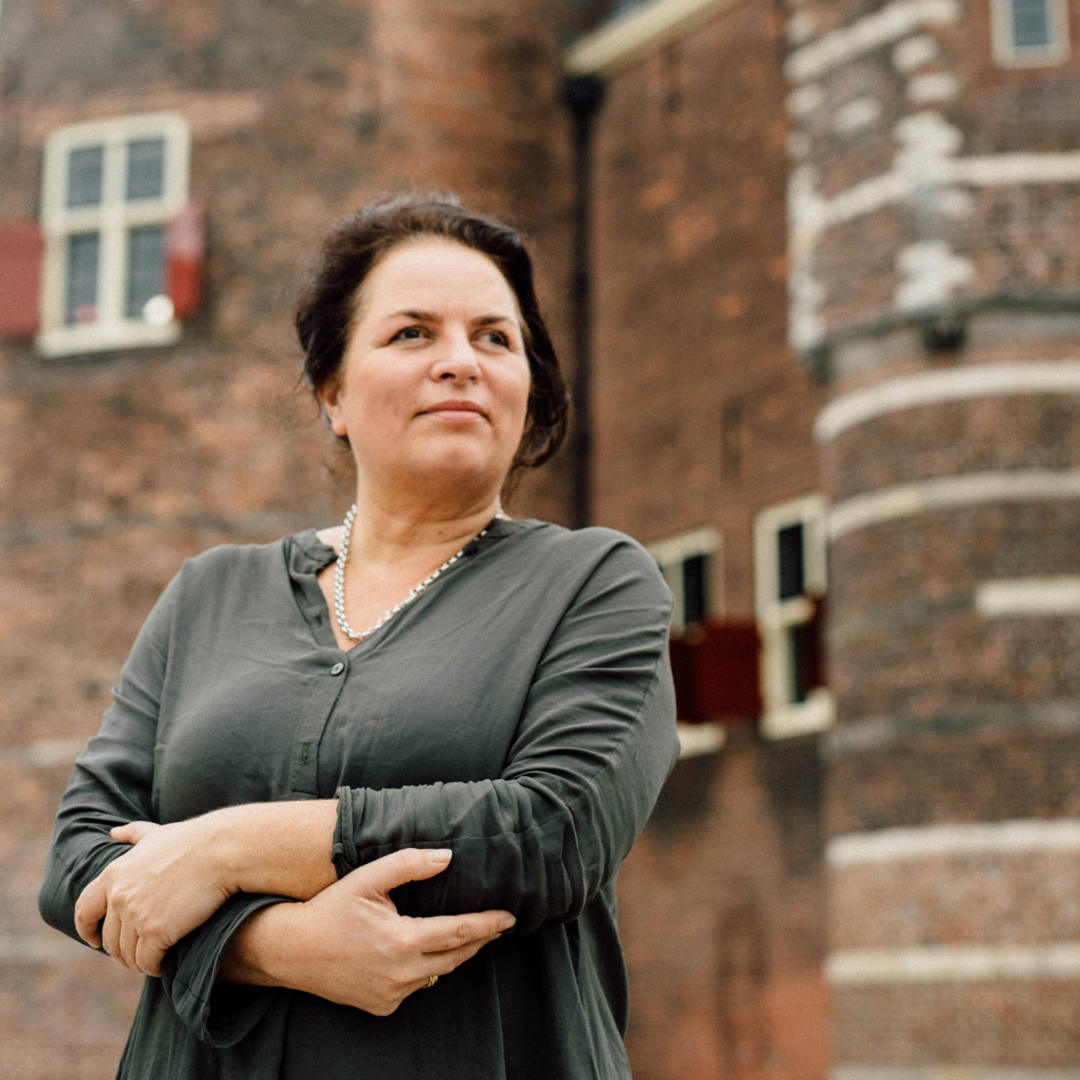Democracy Threatens Big Tech’s Business Model
Max Kortlander, Marleen Stikker / Mar 6, 2024
Clarote & AI4Media / Better Images of AI / Power/Profit / CC-BY 4.0
You’ve lost your privacy. You’ve lost the ability to share content and speech without gatekeepers. You’ve lost control over the public sphere. You’ve lost the freedom to choose which technology you use, and to choose what it shows you.
Big Tech companies want us to believe that the Internet has to be this way, but surveillance, tracking, and manipulation are not inherent to technology. What began as a distributed and open protocol has instead corroded democratic values because of deliberate choices to pursue a type of ad-based revenue model described by Shoshana Zuboff as ‘surveillance capitalism.’ This business model is now threatened by increasing societal awareness that it is incompatible with democracy.
While 94% of Europeans have concerns about targeted advertising online, companies have yet to change course. “There are a lot of things tech companies could do to make the Internet a safer place, but they don’t,” said Paul Tang, Member of European Parliament. Finn Myrstad, co-chair of the Transatlantic Consumer Dialogue, agreed, noting disparities that emerge from General Data Protection Regulation (GDPR) compliance in Europe: “US consumers have less consumer rights than European counterparts on the same service. Companies can provide a higher level of protection, but choose not to.”
Legislators are acting where Big Tech is not. GDPR has put initial privacy protections in place for 450 million citizens in the European market. The Digital Markets Act (DMA), Digital Services Act (DSA), and AI Act bring further tech regulation to Europe, while California’s Privacy Rights Act (CPRA) will introduce new obligations under that state’s existing data privacy law, promising to regulate some of the world’s most powerful tech companies on their home turf. Advocacy for child online safety, as seen in design codes in various US states, the UK and Europe, have potential to promote privacy protections for everyone.
But laws, both old and new, must also be enforced. As Jeff Chester, who spearheaded the Children’s Online Privacy Protection Act in 1998, cautions, “We also need to have the ethical awareness to uphold the laws we’ve made.” Institutions in the US and EU are both capable of enforcing compliance, as demonstrated by Max Schrems’ legal cases in Europe and recent antitrust cases around mergers and acquisitions in the US, where tech regulation receives rare bipartisan support.
There is plenty of room to maneuver beyond laws to protect democratic values online. Tech workers are pushing for unionization. Cultural and educational sectors are developing digital public spaces. Academic and non-profit researchers are making significant contributions to technology based on public values like openness, fairness, and sovereignty. The development of more palatable alternatives like Nextcloud, Fairphone, Proton, and Matrix demonstrate the viability of technology built upon democratic principles.
While surveillance capitalism is under threat from all flanks, efforts to uphold Big Tech’s business model far outweigh coordination to uphold democracy. “[Big Tech companies] have created an effective, powerful lobbying position to ward off regulations and mechanisms of accountability,” says Chester. Myrstad says Big Tech lobbyists work “by deflecting, confusing, and withholding information. They cooperate with consumer groups, with academics. They astroturf, they start think tanks, they start trade groups. They use a lot of covert tactics to undermine democratic values.”
As for a counterweight to the Big Tech lobby, Tang describes coordination as “erratic.” There are some opportunities for dialogue – happenstance encounters between Members of European Parliament and like-minded Representatives in the US Congress, coordination around consumer rights led by the Transatlantic Consumer Dialogue, and international networks of advocates like The People vs Big Tech – but there is no formal coordination between democratic countries to protect democratic values, collective rights, and civil liberties in the face of their biggest threat.
Democracies now have an opportunity to reinvigorate existing alliances around the pursuit of technology that aligns with democratic values. “Coordination requires consensus, and we do have consensus on both sides of the Atlantic,” says Tang. Such coordination should be broadly inclusive, in the form stable channels for politicians, researchers, civil society, developers, and citizens to collaborate around matters of technology and society. The US, EU, and other global democracies must move beyond consumer rights to coordinate tech policy on the basis of democratic values.
In the short term, proponents of democracy can rally against Big Tech’s advertising model. “If you take on ads, you take on Big Tech,” says Tang. Myrstad agrees, noting contextual and self-preference advertising as evidence that media and technology can survive without surveillance advertising. “People don’t want their data to be shared with millions of companies, which is the case today. And they don’t want to be discriminated against...for marketing and pricing purposes.” In the longer term, we face a similar battle against the emergent ‘winner-take-all’ business model behind AI.
Again and again, Big Tech’s business model challenges democratic principles like privacy, equality, freedom, and civil rights. We now face a collective choice: to protect destructive business models in tech and advertising, or to protect democracy.
Authors

